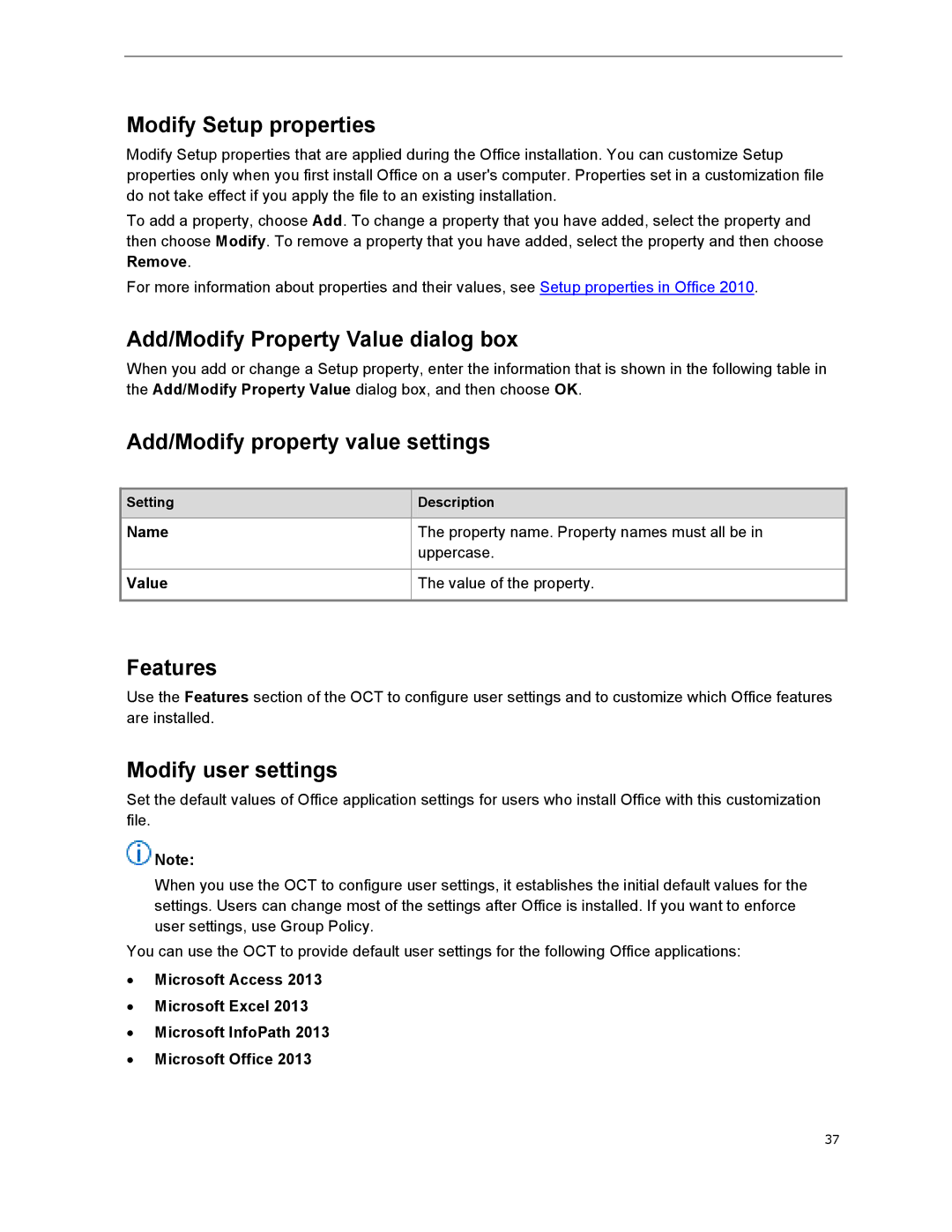Modify Setup properties
Modify Setup properties that are applied during the Office installation. You can customize Setup properties only when you first install Office on a user's computer. Properties set in a customization file do not take effect if you apply the file to an existing installation.
To add a property, choose Add. To change a property that you have added, select the property and then choose Modify. To remove a property that you have added, select the property and then choose Remove.
For more information about properties and their values, see Setup properties in Office 2010.
Add/Modify Property Value dialog box
When you add or change a Setup property, enter the information that is shown in the following table in the Add/Modify Property Value dialog box, and then choose OK.
Add/Modify property value settings
| Setting |
|
| Description |
|
|
|
|
| ||
|
|
|
|
|
|
Name |
|
| The property name. Property names must all be in |
| |
|
|
|
| uppercase. |
|
|
|
|
|
| |
Value |
|
| The value of the property. |
| |
|
|
|
|
|
|
Features
Use the Features section of the OCT to configure user settings and to customize which Office features are installed.
Modify user settings
Set the default values of Office application settings for users who install Office with this customization file.
![]() Note:
Note:
When you use the OCT to configure user settings, it establishes the initial default values for the settings. Users can change most of the settings after Office is installed. If you want to enforce user settings, use Group Policy.
You can use the OCT to provide default user settings for the following Office applications:
∙Microsoft Access 2013
∙Microsoft Excel 2013
∙Microsoft InfoPath 2013
∙Microsoft Office 2013
37
